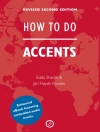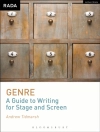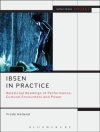This book critically examines matters of age and aging in relation to dance. As a novel collection of diverse authors’ voices, this edited book traverses the human lifespan from early childhood to death as it negotiates a breadth of dance experiences and contexts. The conversations ignited within each chapter invite readers to interrogate current disciplinary attitudes and dominant assumptions and serve as catalysts for changing and evolving long entrenched views among dancers regarding matters of age and aging.
The text is organized in three sections, each representing a specific context within which dance exists. Section titles include educational contexts, social and cultural contexts, and artistic contexts. Within these broad categories, each contributor’s milieu of lived experiences illuminate age-related factors and their many intersections. While several contributing authors address and problematize the phenomenon of aging in mid-life and beyond, other authors tackle important issues that impact young dancers and dance professionals.
Daftar Isi
Chapter 1: Introduction.- Section I: Educational Contexts.- Chapter 2: A Letter Re-Membering Ballet Class: My Young Black Self Writes Her White Ballet Teacher.- Chapter 3: The Youngest Dancers and the Curricula That Engages Them.- Chapter 4: Empowering Young Male Dancers: Perspectives of Adult-Collaborators from the Outside-In.- Chapter 5: When Students Become Teachers.- Chapter 6: Aging in Place in Higher Ed Dance: A View from Middle Age.- Section II: Social and Cultural Contexts.- Chapter 7: B-Girl at 50.- Chapter 8: Dancing Un-Visible Bodies.- Chapter 9: Dancing While Parenting While Dancing.- Chapter 10: Aesthetic Community Building: Moving Stories of Fathers and Sons.- Chapter 11: Dance Me to the End with Love: A Duet with Neuroscience and Dance.- Section III: Artistic Contexts.- Chapter 12: Age Appropriate Ideals in Dance Competition Culture: More! More! More!.- Chapter 13: Age as Another Other: Why I Make Intergenerational Dances.- Chapter 14: Conversations on Change: A Project about Women, Dance, and Aging.- Chapter 15: Narratives on Dancing and Expiring: An “End of Life” Autoethnographic Essay.- Index.
Tentang Penulis
Pam Musil, MA, is a professor emeritus of Dance, Brigham Young University, USA, and a former associate chair of the Department of Dance. As a post-retirement, she works as an independent researcher with interests that include human issues related to dance and literacy, education, gender, and age within populations that span grades 7-12, postsecondary dance education and beyond.
Doug Risner, Ph.D., MFA, professor of dance, distinguished faculty fellow, and director, MA in Dance and Theater Teaching Artistry at Wayne State University, USA, conducts research on the sociology of dance training and education. His book, Masculinity, Intersectionality and Identity: Why Boys (Don’t) Dance [2022], is published by Palgrave Mac Millan.
Karen Schupp, MFA, is an associate professor of dance and an associate director of the Herberger Institute School of Music, Dance, and Theater at Arizona State University, USA. Her research interests include dance competition culture, dancecurriculum and pedagogy in tertiary education, and equity across the spectrum of dance education.












